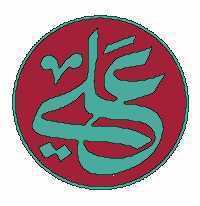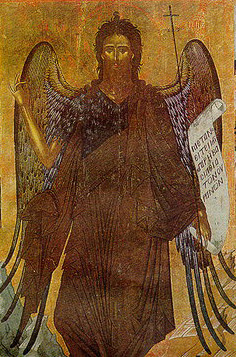 !!! سنة جديدة سعادة "May this be a happy and prosperous Islamic New Year for all the people of that land, so anomalously, called 'Holy.'"
!!! سنة جديدة سعادة "May this be a happy and prosperous Islamic New Year for all the people of that land, so anomalously, called 'Holy.'"
f.y.i.ELECTION DISPATCH
WATCHING HAMAS
by Ari Shavit (
The New Yorker)
Issue of 2006-02-06 // Posted 2006-01-30
Shalom Harari is a former Israeli Military Intelligence officer who has been following the rise of Hamas—the Islamic Resistance Movement—for almost a quarter century. An awkward, voluble man of nearly sixty, Harari gained a measure of fame in intelligence circles when he began to tell his colleagues in internal reports that Hamas, founded in 1987, and initially a small outgrowth of the Egyptian Muslim Brotherhood, would, with its platform of armed resistance, grassroots politics, and Islamic ideology, come to dominate Palestinian politics. Six years ago, while most of his colleagues were anticipating peace, Harari was rightly predicting a second intifada; that uprising led to the decline of Yasir Arafat’s creation and power base, the Fatah Party.
Last Thursday night, just hours after it was announced that Hamas had crushed Fatah in legislative elections––an event that caused some right-wing Israeli politicians to declare the birth of a terrorist “Hamastan”—Harari welcomed a visitor to his home, in the town of Yavne, near the Mediterranean. While most Israeli and Arab-language news channels were broadcasting scenes of Hamas supporters in the Gaza Strip waving green flags as they celebrated their stunning victory, Harari had tuned in to a seemingly tedious military ceremony on Egyptian state television. “Look at the wives of the generals,” he said. “Many of them are wearing traditional head scarves. This was not so ten years ago. And this tells you where we are heading. When the women of Egypt’s pro-Western military élite are dressed like that, you know that the Hamas victory is not about Palestine. It’s about the entire Middle East.”
Harari, who served as an intelligence officer in the West Bank and then as the adviser on Palestinian affairs to the Israeli Defense Ministry, is still closely connected to his former colleagues, and he said he had heard that, some weeks ago, the Palestinian President, Mahmoud Abbas, who was afraid of a Hamas rout at the polls, begged Secretary of State Condoleezza Rice to exert United States pressure and postpone the scheduled elections. Rice refused, Harari said, and told Abbas to go forward. (A State Department spokesman declined to confirm the details of their conversation.)
And yet Harari would like to believe that the American “mistake”––if that is what it was––was a blessing in disguise. “At least, now we know what we are faced with,” he said. “Now we can make a real diagnosis and understand what is truly the malaise.”
Harari said that he first took note of the Palestinian Islamists in the early nineteen-eighties, shortly after the Iranian revolution, when Islamists won student elections in the prestigious universities of the West Bank. A decade later, Islamists won elections in chambers of commerce in the occupied territories and, more recently, started to win in municipal elections. Now Hamas has taken control of the parliament, he said, and is sure to challenge Abbas for the Presidency.
But look around, Harari said: “In Jordan, too, wherever there are free elections––trade unions, student unions, professional guilds––the Islamists have the upper hand. If the Hashemite kings”––Hussein and Abdullah––“had not played all kinds of tricks, the Islamists would have had a large representation in parliament as well. And when Egypt held its American-inspired parliamentary elections recently, the number of seats won by the Muslim Brotherhood rose fivefold. Throughout the Middle East, the Muslim Brotherhood is the main power with grassroots support. The Islamists are less corrupt. They are the ones with integrity and compassion. They are of the people and they speak for the people. Today in the Arab world, the choice is clear between democratically elected Islamists and Western-leaning dictators.”
Rising heavily from the sofa in his living room, Harari held up a small prayer carpet he acquired in Gaza almost ten years ago. The rug had been woven by handicapped children in a philanthropic workshop run by Yasir Arafat’s brother, Fathi. “Look at it,” Harari said. “It has a map of the entire land—from the Jordan River to the Mediterranean Sea. But the land is all green. All Muslim. No place for Jews here, no mention of Israel. Acre, Jaffa, Nablus—no Tel Aviv. Yet this was woven in a Fatah institution. Back in the Oslo era, the Hamas terminology was already taking over Arafat’s movement.
“Now look at these campaign posters,” he went on, gesturing at his collection. “They are all from recent weeks. Notice the difference: while the Hamas ads are calm and tranquil, with no hint of violence, the Fatah ads are full of guns and grenades and jihad rhetoric. While Hamas projects religious dignity, Fatah goes back to its aggressive revolutionary ethos. There was no real talk of peace. The decades of work that Hamas did in mosques and schools and charity organizations transformed Palestinian society from within. What suddenly erupted today has been simmering beneath the surface for a generation. There was not one moderate option that represented the whole Palestinian people. Americans, Europeans, and moderate Israelis like me wanted to believe that Arafat and Abbas were the sole representatives of the Palestinian people, but they were not. Hamas claimed all along that it had the support of forty per cent of the Palestinians, and it was probably right. Among the fundamentalists, the idea that Islam is superior to other religions has become predominant. Long before it took over the Palestinian parliament, Hamas managed to turn what we thought to be a national conflict into a religious war.”
Harari, as a retired brigadier general, admits to being impressed by the resilience of the Hamas leadership in the face of Israeli attacks. The issue, of course, is whether this revolutionary movement, whose charter is devoted to the elimination of Israel, could develop into a ruling party interested in territorial compromise. On that Harari is doubtful. “It would take years before real negotiations could resume,” he said. “An over-all peace agreement is out of the question for a long time. ”
Yet the impact of the Hamas victory, he said, is not local but regional. “As we speak,” he said, “there are growing fears not only in Israel but in Jordan, Egypt, and even Syria. The Hamas victory is a Middle East earthquake. Its shock waves will be felt in every town between Casablanca and Baghdad.”

































